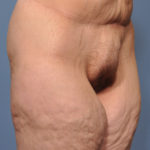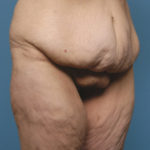
This is particularly true in the patient who has lost weight through bariatric surgery. Bariatric surgery alters the way that foods are digested and processed. In the gastric bypass patient in particular, foods that are taken by mouth are not fully absorbed in the intestinal tract, a process known as malabsorption. This malabsorptive process is a major reason that this weight loss operation works. Nutritional deficiencies following this type of bariatric surgery are common from a combination of this malabsorptive process and an intolerance to certain types of foods that have valuable nutritional ingredients. The most common nutritional deficiencies from a gastric bypass procedure include vitamin B12, folate, calcium, and iron.
Gastric tightening or a restrictive surgical approach to weight loss include the Lap-Band and vertical banded gastroplasty. These procedures can also have nutritional deficiencies, even though the absorption of nutrients is normal, due to persistent vomiting or a low amount of food intake. Common nutritional deficiencies include folate, thiamine, and potassium. Such nutritional deficiencies may also develop in non-surgical weight loss diets which are very restrictive, especially if the weight loss is quite rapid.
These nutritional deficiencies can usually be prevented through proper supplementation after bariatric surgery. But it usually requires working with a dietitian in a structured program. Even in a bariatric patient who may be years after their surgery, I am still not comfortable with extensive body contouring surgery unless I know the patient is part of a structured nutritional program and is monitored. Periodic laboratory tests and follow-up evaluations are important and a necessary requirement prior to large plastic surgery procedures.
Dr. Barry Eppley
Indianapolis, Indiana



